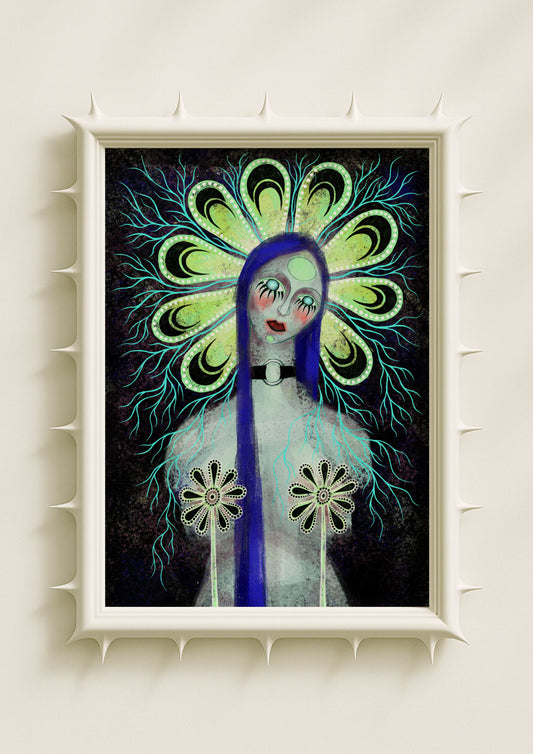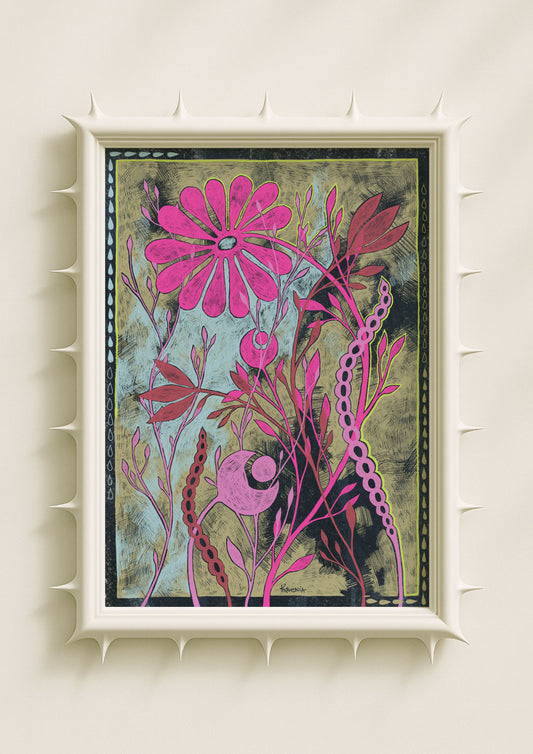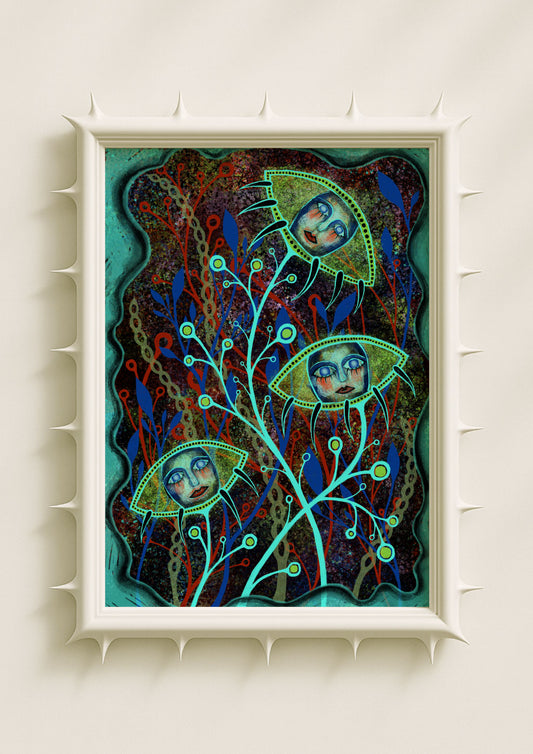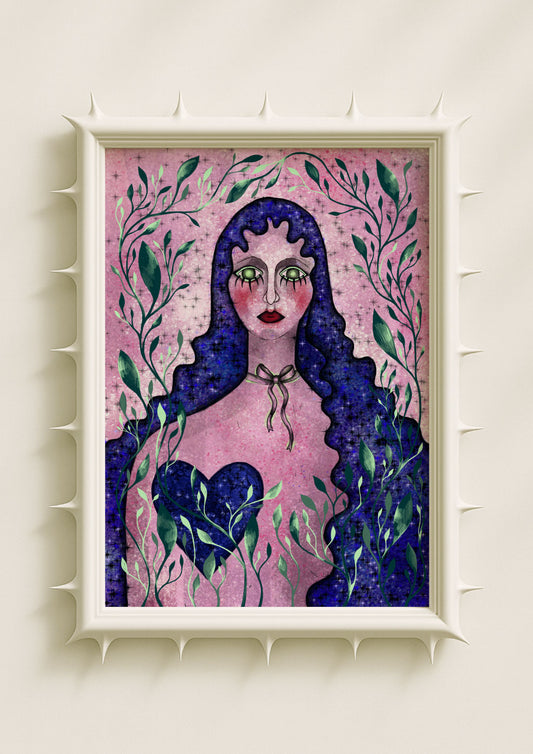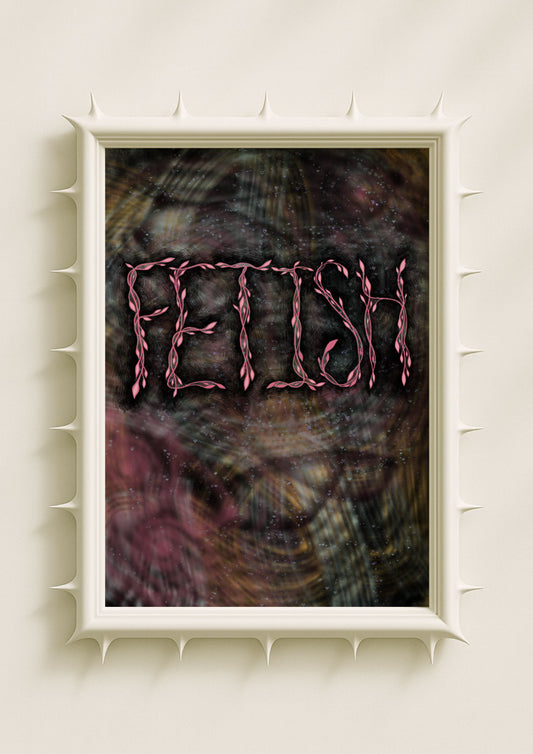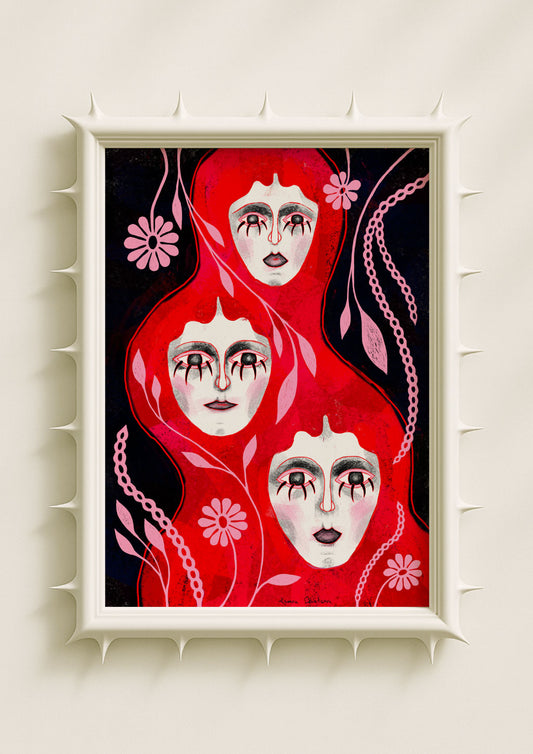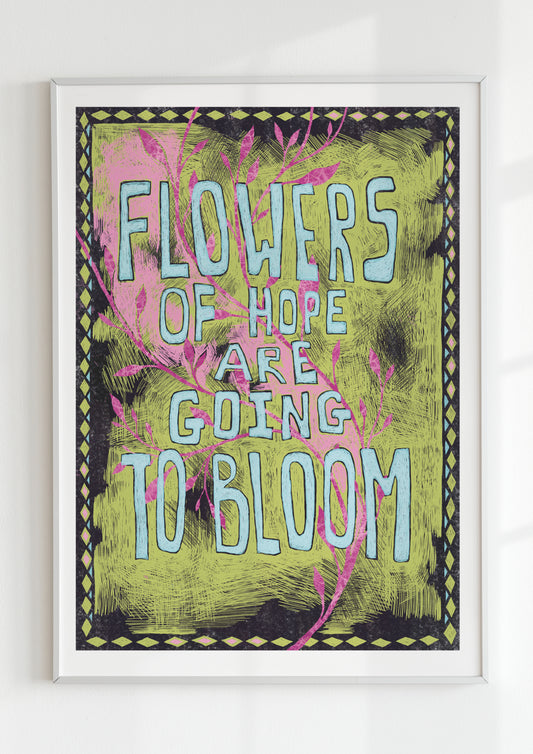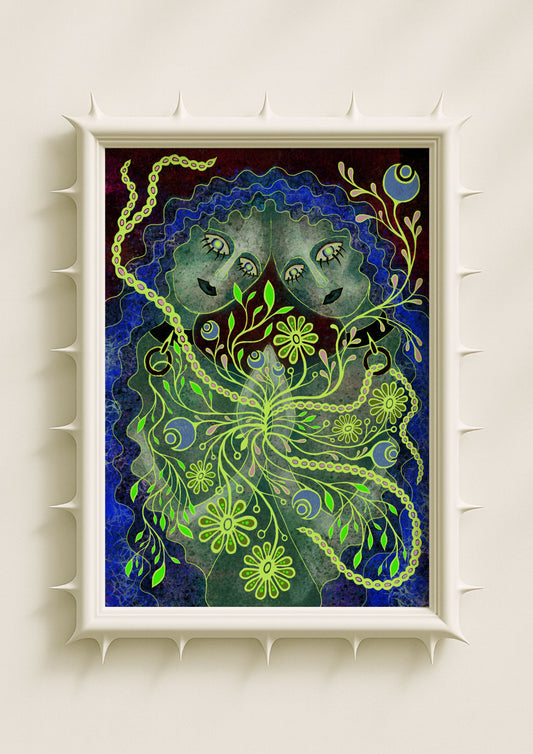How Folk Symbolism Becomes a Pathway for Manifestation
Folk symbolism has always carried the weight of intention. Before modern language around manifestation existed, communities used symbols—circles, flowers, patterns, talismans—as visual tools for grounding emotion, desire, and protection. My work draws from this lineage, not in a literal revival but in a surreal reinterpretation. When I use dotted halos, mirrored botanicals, and talismanic shapes around my portraits, I’m creating visual fields where inner life becomes structured and focused. These symbols act like emotional anchors. They hold the energy that accompanies transition, clarity, or desire — the heart of manifestation.

Talismans as Emotional Architecture
In my portraiture, talismanic forms often appear as small geometric shapes, rhythmic dots, rings, or floral fragments placed around the figure. They create a subtle architecture around the face, forming a protective or intentional space. Folk talismans were made to safeguard the interior world of a person; in my work they safeguard the emotional truth of a portrait. These symbols don’t “protect” in a mystical sense — they protect the integrity of the figure’s inner state. They keep the emotional climate undisturbed, allowing manifestation to take shape from a grounded centre.
Dotted Halos and Rings as Containers of Intention
The dotted halos that sit behind many of my portraits come from both folk art and the inner logic of surrealism. The repetition of dots creates rhythm, which naturally mirrors the rhythm of attention — a core part of any manifestation practice. These halos act like visual breathwork: steady, cyclical, collected. Surrounding a head with a dotted circle gives the portrait a sense of focus and internal order. The halo becomes a container for intention. It frames the figure not as an icon, but as someone holding a private, growing clarity. The effect is calm, ritualistic, and emotionally attuned.

Mirrored Flowers as Symbols of Becoming
Mirrored botanicals appear throughout my work: pairs of flowers that fold toward each other, stems that echo their own form, petals that open symmetrically. In folk traditions, symmetry was often used to signal harmony between worlds — inner and outer, physical and spiritual, present and future. In my surreal-folk pieces, mirrored flowers represent a different form of balance: the alignment between feeling and desire. They visualise the point where emotion becomes intention. A mirrored bloom behaves like a quiet affirmation. It shows a self reflecting itself, preparing to move forward.
Folk Surrealism as a Bridge Between Past and Inner Worlds
My approach to folk symbolism is not nostalgic. It isn’t about recreating motifs from the past, but about using their emotional logic in a contemporary, surreal language. Folk art often used simplified shapes, bold contrasts, and repetitive patterns to express universal experiences. In my work, these tools become ways to access interiority. Soft surrealism meets folk structure: glowing petals paired with geometric halos, abstracted faces surrounded by ritual shapes, flowers that behave like emotional diagrams. This crossover creates a visual world where manifestation can be understood as both ancient and personal.

Colour as the Emotional Frequency of Folk Symbolism
The colours in my folk-surreal pieces — hot pink, lilac haze, teal shadows, soft black, acid green — carry the emotional frequency of the symbols. Folk art traditionally used bright, saturated colour for symbolic clarity. In my work, the palette becomes intuitive and internal. Hot pink amplifies desire and intensity. Lilac reflects introspection and softness. Acid green introduces breakthrough energy. Teal stabilises. When placed around talismanic shapes or mirrored botanicals, these colours animate the symbolism. They turn the portrait into a living emotional field.
Halos and Talismans as Visual Ritual
Rituals of manifestation often rely on repetition, silence, and attention — and visual symbols can support that process. The halos, dots, petals, and symmetric forms in my portraits provide stillness for the viewer. They create a surface that feels intentional, rhythmic, and emotionally steady. The portrait itself becomes a ritual object, not through mysticism but through emotional clarity. The figure holds her intention. The symbols hold the space around her.

Why Folk Symbolism Resonates With Manifestation Today
In a time where inner life is often fragmented, folk symbolism brings a sense of coherence. It reminds viewers of patterns that have always helped people make sense of emotion: circles for continuity, flowers for growth, symmetry for alignment. When these forms appear in contemporary surreal portraiture, they carry that resonance forward. They offer viewers an image that feels both familiar and inward-facing — a visual metaphor for the act of manifesting from emotional truth.
In this sense, folk symbolism becomes more than decoration. It becomes a language of intention, grounding surreal femininity in something timeless, rhythmic, and quietly powerful.
